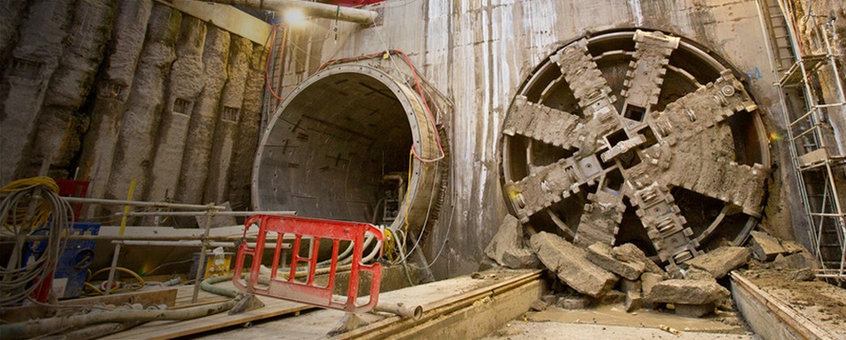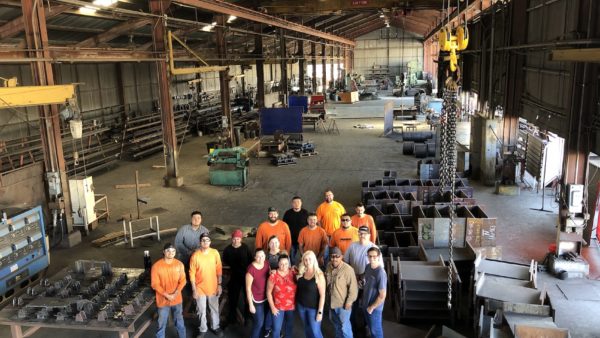That’s how much China will invest in UK property and infrastructure over the next decade, a report claims. But can Britain’s creaking procurement system actually spend all that cash? And how will it pay it back?
As we reported last week, a study by international law firm Pinsent Masons and the Centre for Economics and Business Research (Cebr) predicts that China will invest $169bn (£105bn) in UK property and infrastructure between now and 2025.Â
Is that a lot? For the UK, it certainly is. Its proposed new high-speed rail network, HS2, is considered a gargantuan expenditure at £50bn. In this context, the torrent of Chinese cash could be a “game-changer” for the entire British economy, say the report’s authors.
But from a Chinese perspective, it’s a modest sum. The second-tier Chinese city of Wuhan, for instance, is planning to spend $320bn over the next five years on items such as a second international airport, a complete subway system, a ring road and a $4.8bn tower. (Those figures do not convey the full picture, of course, because a dollar spent in Wuhan buys about 40% more with respect to local construction services.)
If you want another disorienting comparison, the amount of construction and infrastructure work being undertaken in Beijing is equal to that carried out in the whole of Europe. The same is true of Shanghai.Â
This kind of expenditure is made possible, or perhaps essential, by the extraordinary capacity of the Chinese economy to accumulate capital. The rate of China’s savings is around 45% of income, meaning that a dollar is put into the bank for every one spent. This has led to gross savings of about $5.5 trillion. That figure becomes almost $10 trillion if you include foreign currency reserves, the result of two decades of trade surpluses with the industrialised world. Â
Driven
Of course capital is only capital if it is invested, and the presence of so much money in its liquid, form is something of a hostage to fortune, or at least to the vagaries of international exchange rates. But the Chinese government is in the position of the sorcerer’s apprentice: even as it is engaged in frantic procurement activity, it already seems to have made too much of everything.Â
The amount of construction and infrastructure work being undertaken in Beijing is equal to that carried out in the whole of Europe. The same is true of Shanghai.–
Speaking at a conference on Chinese investment organised by Pinsent Masons last week to mark the report’s launch, Nin Ling, the director general of the UK branch of the China Council for the Promotion of International Trade (CCPIT), pointed out the extraordinary fact that although the population of China is about 1.3 billion, the economy had built homes for 3.4 billion people. This evokes the spectre of a prolonged slowdown in the economy, and an economy that is unable to respond to any further demand stimulation.Â
The consequences may be serious, and are certainly difficult to predict. Some commentators, who note that steel is now selling for the same price as cabbage, and sceptical about official Chinese growth statistics (which Chinese premier Li Keqiang was reported in a Wikileaks cable to have called “man-made”), suspect that the present gloom in the global economy is caused by a much greater fall in Chinese output than is generally realised.Â
The inability of China’s domestic economy to absorb such a high level of investment is creating intense pressure to find opportunities elsewhere, and this is driving the Communist Party’s policy of exporting capital. The annual flow of Chinese foreign direct investment (FDI) is growing geometrically, from $50bn in 2008 to $100bn in 2013 and is projected to reach $600bn in 2025, by which time it will account for 30% of the global total.

Aerial view of Beijing, where construction activity is presently equal to the whole of Europe (Wikimedia Commons)
According to the Pinsent Masons report, the opinion among business people and government officials – who, in China, may be the same people – is that the UK is one of the most attractive destinations for Chinese investment, along with Japan and the US. What’s more, it may become more attractive if, as expected, the economic rivalry between the US and China intensifies in the future.Â
But is the UK economy in a position to absorb China’s surplus cash? And if it does, will it be a game-changer in ways that the UK public has not bargained for?Â
The proposition
Danae Kyriakopoulou, a macroeconomist at Cebr, says the UK has attracted just over $25bn of China’s money over the past 10 years. The possibility that the UK may be about to experience a sixfold increase in this FDI is concentrating minds in both countries, partly because of the difficulties it raises.
The principal issue for the UK government is in attracting the right kind of investment. Britain’s position in the world infrastructure league table, as compiled by the World Economic Forum, is number 27. The goal is to improve that poor standing with the help of Chinese funding, but the initial problem is that, so far, Chinese investors have taken the relatively safe and straightforward option of buying equity in property and businesses. Notable deals include the $450m purchase of Drapers Gardens in the City of London by developer Ginko Tree, and the 10% stake in Heathrow airport and 9% stake in Thames Water bought by China Investment Corporation, the country’s sovereign wealth fund.
This is all well and good for London’s already booming property market, but what the UK government really wants is Chinese help with infrastructure: roads, rail, water and power – the UK’s electricity output is only about 60% that of France. The National Infrastructure Plan estimates that the UK needs to spend £383bn on its physical fitness between now to 2020; not a lot of money by Wuhan standards but a major challenge for Britain’s public sector borrowing requirement.
So this is where the Chinese come in. And if they start to undertake design-and-build work it will involve them in a much more direct way than merely owning equity: the report envisages Chinese contractors raising their flags above site hoardings around the country as part of joint ventures with their UK counterparts. This would mean that projects would follow the template created by the $1.3bn Airport City scheme in Manchester, which was won by Beijing Construction Engineering Group (BCEG) as part of a 50:50 joint venture with Carillion.
Wei Wang, the assistant president of China Building Technique Group, who helped to put together the BCEG bid, said there was a natural fit between Chinese and British firms. He said the Chinese have their established supply chains within a vast, low-cost manufacturing base, their access to funds in state-owned banks and, by now, immense experience of design-and-build work. The contractors on the UK side of the equation have their expertise too, of course – Mr Ling says UK firms’ work lasts about four times longer than their Chinese counterparts – but more importantly they can act as guides, enablers and interpreters for their partners.
Dr Wang added that BCEG was extending this 50:50 model with Mace in a series of projects in London, and Kier, Wates and Sir Robert McAlpine have been contacted with a view to making similar arrangements. Â
Help wanted
This joint venture model may be feared by UK contractors, but welcomed by UK construction clients. Sir John Armitt, the present chairman of National Express Group and former head of the Olympic Delivery Authority, said the influx of resources would help remedy the chronic weakness of the UK’s contracting sector.Â
Referring to the series of profit warnings issued by Balfour Beatty, he said: “Major British companies in the construction industry are fundamentally undercapitalised. It’s ridiculous that the largest construction company in this country, faced by a £75m drop in profits, goes into meltdown. What you’re seeing across the field at the moment is the penetration of the UK market by Continental contractors and I see no reason why that shouldn’t be followed up by Chinese companies.”
This presents another difficulty. One controversial practice that has marked Chinese projects in emerging economies is the importation of workers from China. It’s nearly impossible to see this happening in the UK, where sentiment against migration and wage deflation is running high. But for many years the UK’s vocational training system has been neglected. Even the modest upswing in demand for construction in the past 12 months has sparked warnings of a skills crisis.
So, if ready Chinese capital gives rise to a rush of new infrastructure, property and energy projects down the road, how will UK construction in its half-starved state build them?Â
Armitt said: “If we’re serious about long-term investment coming into the UK you have to get into the issue of skills. The thing about the construction industry in this country is that we always just about get there, and because we just get there time and time again it reinforces the belief that we in the private sector don’t need to address training to the degree that we do need to. Otherwise, the shortfall that will develop over the next 10 to 15 years is staggering.”Â
Wishy-washy?
Another difficulty is that, while the UK may be keen to channel China’s surplus billions into infrastructure, it has little in the way of shovel-ready schemes to offer just now.
One obvious possibility is the UK’s nuclear power programme, and this looks certain to be an important element in Anglo-Chinese relations in the next decade. Then there are more fanciful possibilities, such as the London infrastructure plan, set out by mayor Boris Johnson in July. This envisages $760bn in investment in the next 10 years, and would be a vast sponge for Chinese money, but that plan was more of a wish list than a worked-out programme, and there is some way to go before anything real projects are underway.

Crossrail, Europe’s largest construction project, and the kind of scheme Chinese banks may fund in the future (Crossrail)
Outside London, the national infrastructure plan has been largely limited to the government’s prized HS2 high-speed rail scheme, in which the Chinese have already expressed an interest. It faces significant opposition, however, and there will be no real clarity on its fate until after the May 2015 general election.
Experts at the conference bemoaned the UK’s wishy-washiness over infrastructure. “Infrastructure spending can boost GDP in a sustained manner,” said Gershon Cohen, head of infrastructure funds for Aberdeen Asset Management. “However in the aftermath of the financial crisis and government-imposed austerity measures, we do risks missing out on this windfall owing to a relatively weak pipeline of assets and opportunities and regulatory uncertainty that could put recovery at risk.”
The Chinese, of course, are incredulous at the difficulty and delay involved in getting big projects off the ground in the UK. Mr Ling of the CCPIT commented that although Britain needs to build infrastructure, and although it is the most open country in the world for Chinese investment, his office had struggled to find a partner to work with. He said: “It’s not only the government that does not seem to have the power to do something, but also the business institutions do not have the power to do something.”
There are signs, however, that the UK project pipeline could start bulging in the not-so-distant future. The government wants to make England’s neglected north an economic powerhouse, and has admitted that better infrastructure is key. What has held effective infrastructure development back in the north, according to the influential City Growth Commission, is the iron grip on planning and spending maintained by central government.Â
This week, however, Chancellor George Osborne announced that Greater Manchester would get powers over transport and housing. This could be the first rolling pebbles of the UK devolution landslide triggered by the Scottish independence referendum. City regions, which had their capacity for independent action removed in the 1980s, might regain the authority to devise their own plans and seek funding for their own infrastructure schemes – thereby creating attractive targets for Chinese investment.
It may be that, in terms of infrastructure, the UK is just holding its breath in the lull before the 2015 election.Â
Payback
If Chinese institutions really do succeed in sinking $169bn into the UK’s stock of assets, that is a lot of money to pay back – with interest and dividends. For the British public, this may be the biggest game-changer of all.Â
Toll roads? Absolutely, said Lord Sassoon, Chairman of the China-Britain Business Council and a former senior Treasury official: “I believe that monetising the roads would be the most obvious way.”
Armitt agrees. “At the end of the day, Chinese investment has to be repaid, whether at point-of-use or through general taxation,” he said. “I have been arguing for 20 years that we should privatise our motorway network, and we don’t do it because we’ve been unable to present to the public the way they are presently paying for their road use.”
British consumers might have to pay more for what they perhaps take for granted, like water. This is already happening. To pay for its $6.7bn “super sewer” under London (the 25-km-long Thames Tideway Tunnel), Thames Water has already started hunting for foreign private investment. To pay those investors back, the company will increase Londoners’ water bills.
But nothing comes free, and the public may just need to be educated, said Tony Bickerstaff, group finance director of contractor Costain. “The average price of water for a customer in the London region is £1 a day, for which they get 150 litres of drinking quality water,” he said. “We’d all go into a shop and happily buy one litre of water for a pound, yet we will also moan about increases in our water bill to fund a secure supply. I think that’s a strong example of the education we have to do.”
As the British public and its newspapers are firmly convinced that they are overcharged by their utility providers, both of these propositions would require either a great deal of education or a prime minister and a chancellor with exceptional political courage.Â
Road pricing was called for in quite strident terms by the 2006 Eddington report, only to be instantly dismissed by the then Labour government. The question of how exactly we will deal with the question of finance is probably the most urgent one, and how that is answered may present us with a new game altogether.
To see the report, China Invests West: Can Chinese investment be a game-changer for UK infrastructure? Visit: http://www.pminfrainvestmentreport.com
Comments
Comments are closed.











Does Tony Bickerstaff bath and wash in water which he buys in a shop for £1 a litre?
This is the sort of slopply thinking which will get us buying expensive infrastructre via allowing overseas investors to do this via expensive (for the UK) direct investment (which takes money out of the UK forever) rather than the UK borrowing cheaply where repayments end once interest and capital sum are paid off.
Spend it on repairing the Houses of Parliament